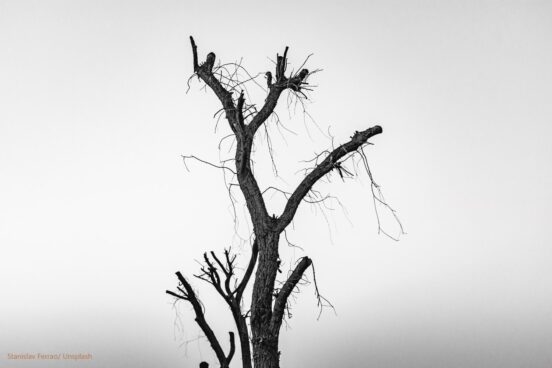You are one of the founding members of the International Association for the Philosophy of Death and Dying. I was wondering what the main questions in this field are.
Death and dying is actually one of the oldest and most pervasive concerns within philosophy. In fact, virtually every philosophical tradition explores how human beings should relate to death and mortality. Plato even went so far as to say that philosophy’s purpose is to prepare us for death.
But over the past half century, the philosophy of death and dying has undergone a renaissance. Among the main questions about death and dying that philosophers explore are: Does death represent the end of us, or could we survive death — perhaps even become immortal? Should we wish for such immortality? How ought we feel about the fact that we are mortal? Does death itself merit fear — or some other emotional response such as anger or gratitude? Does the fact that we die threaten the prospect that our lives can be meaningful? And is death bad for us, and if so, how?
Death and dying is also a very vibrant area of research because it cuts across various subdisciplines within philosophy, including ethics, metaphysics, political philosophy, philosophy of medicine, philosophy of religion, even philosophy of technology.
During the pandemic, we are experiencing a new form of relationship with death. Every day, we see our friends and family members or those of others passing away, at a distance from us. We cannot attend family ceremonies, and even sometimes we need to mourn in isolation. This is somehow a new experience for many of us. How do philosophers help in this hour of need?
Most people in prosperous modern societies can effectively keep death and mortality at arm’s length: Death is an infrequent event that happens behind closed doors, usually occurring with plenty of warning (most people die of long-term chronic illnesses rather than due to accidents or infectious disease). The Covid pandemic has upended these expectations, and in so doing, intensified what psychologists call ‘mortality salience,’ that is, our awareness of our own vulnerability to death.
Ironically though, while the pandemic has brought death nearer, it pushes the dead and the dying farther away in many respects. Family and friends are barred from physical proximity to the infected, and social distancing necessitates that we grieve at a distance as well. For many, these experiences of others’ death and dying are jarring, even traumatic. What we see in the pandemic, arguably, is individuals being deprived of opportunities to achieve the goods of grief. And that’s where philosophy enters the scene to help us make rational sense of the world and our experience in it. In this case, philosophical inquiry can help us clarify what is ethically at stake in grief and mourning by situating them within larger evaluative frameworks. In other words, philosophy allows us to see what is good about grief and mourning and hence to pinpoint what the pandemic has deprived us of in that regard. More constructively, philosophy can help us sort through the social and political imperatives left in the pandemic’s wake, including developing practices that foster the goods of grief; implementing policies that ensure just and equitable access to those goods regardless of one’s social station or background; and ascertaining how communities should commemorate the pandemic and memorialize its victims.
It has been said that ‘philosophy begins in wonder’. The current extraordinary situation makes us think about the things we took for granted in the pre-pandemic world; such as the importance of access to the dead body of the loved one. I know that in your forthcoming project at the University of Edinburgh you are researching this topic as well. Could you please share some of the ideas of your research with us?
My existing research on the philosophy of grief proposes that grief is our response to how our worlds and our identities are altered by the deaths of those in whom we are emotionally invested, and more specifically, how their deaths compel transformations in our relationships with them. In my future research, I’d like to understand better how rituals and other social expectations serve to facilitate those transformations and thereby foster what is valuable or important about grief. In the case of physical proximity to the corpse of a loved one, my hunch is that this often allows a bereaved to relate to the dead in a state where they are neither alive but also not yet fully departed. This might make the needed transformation in their relationship with the deceased less abrupt and allow the bereaved to begin envisioning the role the deceased might play in their life henceforth. More broadly, I’m hoping that interdisciplinary research in collaboration with Edinburgh colleagues will allow me to articulate the clinical, therapeutic, and institutional implications of the philosophical theory of grief I’ve advanced in my research thus far.
The interdisciplinary approach to this topic is quite fascinating. While anthropologists are studying the funerary rites and rituals of grief, the medical scientists are more focused on the biological aspects of death. In what ways could these fields help philosophers in understanding death or grief?
There’s a useful division of labour between philosophy and other disciplines when it comes to thinking about death. Other disciplines are sources of data about how death is understood in different cultures and institutional settings, data that philosophers can employ as evidence in inquiring into death’s significance. Without that data, philosophers would have little to go on — but without philosophy, we’d be confounded in our efforts to understand why death is such a central part of human life.
Michael Cholbi is a professor of philosophy at the University of Edinburgh. He has published in moral philosophy, with an emphasis on Kantian ethics, philosophy of death and dying, paternalism, punishment, and the ethics of work.





Comments by Hashemi